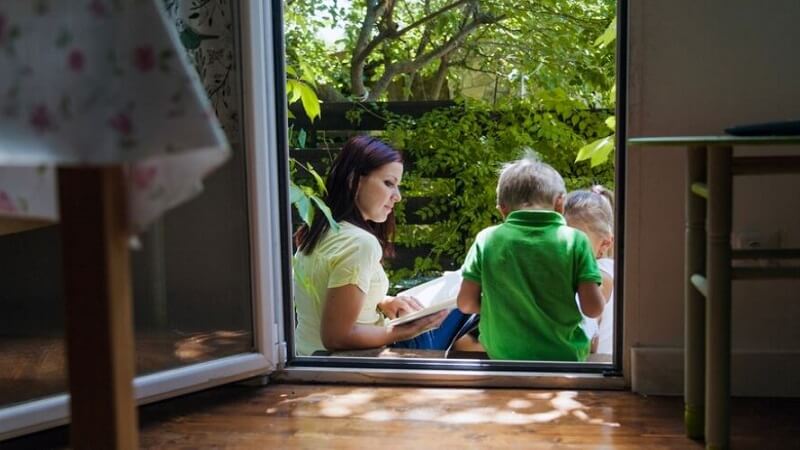In a world where education is often synonymous with standardized tests and rigid structures, Garden House Waldorf School stands out like a vibrant bloom in a concrete jungle. Let’s embark on a journey to explore the essence of Garden House, where nature meets nurture to cultivate young minds.
- Embracing Nature
At Garden House, nature isn’t just a backdrop; it’s an integral part of the learning experience. Surrounded by lush greenery, students are encouraged to explore, observe, and interact with the natural world. From outdoor classrooms to gardening projects, every corner of the school echoes with the melodies of nature.
- Holistic Learning Approach
Unlike traditional education systems, Garden House adopts a holistic approach that nurtures the mind, body, and soul. Here, learning isn’t confined to textbooks; it encompasses art, music, movement, and hands-on experiences that engage all the senses.
- Creative Expression
Creativity thrives at Garden House, where students are encouraged to express themselves freely through various art forms. Whether it’s painting, sculpting, or storytelling, every child’s unique talents are celebrated, fostering a sense of confidence and self-expression.
- Nurturing Individuality
No two flowers are alike, and neither are two students at Garden House. The school celebrates the diversity of personalities, interests, and learning styles, providing personalized attention to help each child bloom to their fullest potential.
- Community Engagement
Garden House isn’t just a school; it’s a vibrant community where students, teachers, and parents come together to support and inspire each other. From volunteer projects to cultural festivals, community engagement is woven into the fabric of daily life.
- Focus on Emotional Intelligence
In addition to academic excellence, Garden House places a strong emphasis on emotional intelligence. Students learn to navigate their feelings, develop empathy, and build healthy relationships, laying the foundation for lifelong social and emotional well-being.
- Outdoor Education
The world is our classroom at Garden House, where outdoor education plays a central role in the curriculum. Whether it’s hiking through the forest, studying local ecosystems, or camping under the stars, students gain a deeper appreciation for the natural world and their place within it.
- Integrating Arts and Academics
Art isn’t just an extracurricular activity at Garden House; it’s integrated into every aspect of the curriculum. From incorporating music into math lessons to using drama to explore historical events, the arts enrich and enliven the learning experience.
- Teacher-Student Relationships
At Garden House, teachers aren’t just educators; they’re mentors, guides, and allies on the journey of learning. With small class sizes and a focus on individualized attention, students form meaningful connections with their teachers, fostering trust and collaboration.
- Sustainability Education
As stewards of the earth, Garden House is committed to instilling a sense of environmental responsibility in its students. Through eco-friendly practices, recycling initiatives, and lessons on sustainability, students learn to respect and protect the planet for future generations.
- Parental Involvement
Parents are valued partners in the Garden House community, actively involved in their child’s education and the life of the school. From volunteering in the classroom to participating in parent-teacher conferences, parents play a vital role in shaping the educational journey.
- Encouraging Curiosity
Curiosity is the fuel that drives learning at Garden House, where students are encouraged to ask questions, explore new ideas, and think critically about the world around them. By nurturing curiosity, the school sparks a lifelong love of learning that extends far beyond the classroom walls.
- Celebrating Diversity
Diversity is celebrated and embraced at Garden House, where students learn to appreciate different cultures, perspectives, and ways of life. By fostering a culture of inclusivity and respect, the school prepares students to thrive in an increasingly interconnected world.
- Lifelong Learning Philosophy
Education doesn’t end with graduation at Garden House; it’s a lifelong journey of discovery and growth. By instilling a love of learning and a growth mindset, the school equips students with the skills and resilience needed to navigate an ever-changing world.
- Conclusion
In conclusion, Garden House Waldorf School offers a truly unique learning environment where nature and nurture converge to inspire, educate, and empower students. By embracing creativity, community, and the wonders of the natural world, Garden House cultivates not just scholars, but compassionate, curious, and confident individuals ready to make a difference in the world.
FAQs (Frequently Asked Questions)
- What is the philosophy behind Garden House Waldorf School? The philosophy of Garden House is rooted in holistic education, nurturing the mind, body, and soul of each student.
- How does Garden House incorporate nature into its curriculum? Garden House integrates nature into every aspect of learning, from outdoor classrooms to gardening projects and nature hikes.
- What role do parents play in the Garden House community? Parents are valued partners in the educational journey, actively involved in their child’s education and the life of the school.
- How does Garden House foster creativity and individuality? Garden House celebrates the unique talents and interests of each student, providing opportunities for creative expression and personalized learning.
- What sets Garden House apart from traditional schools? Garden House stands out for its holistic approach to education, focus on community engagement, and commitment to sustainability and diversity.
